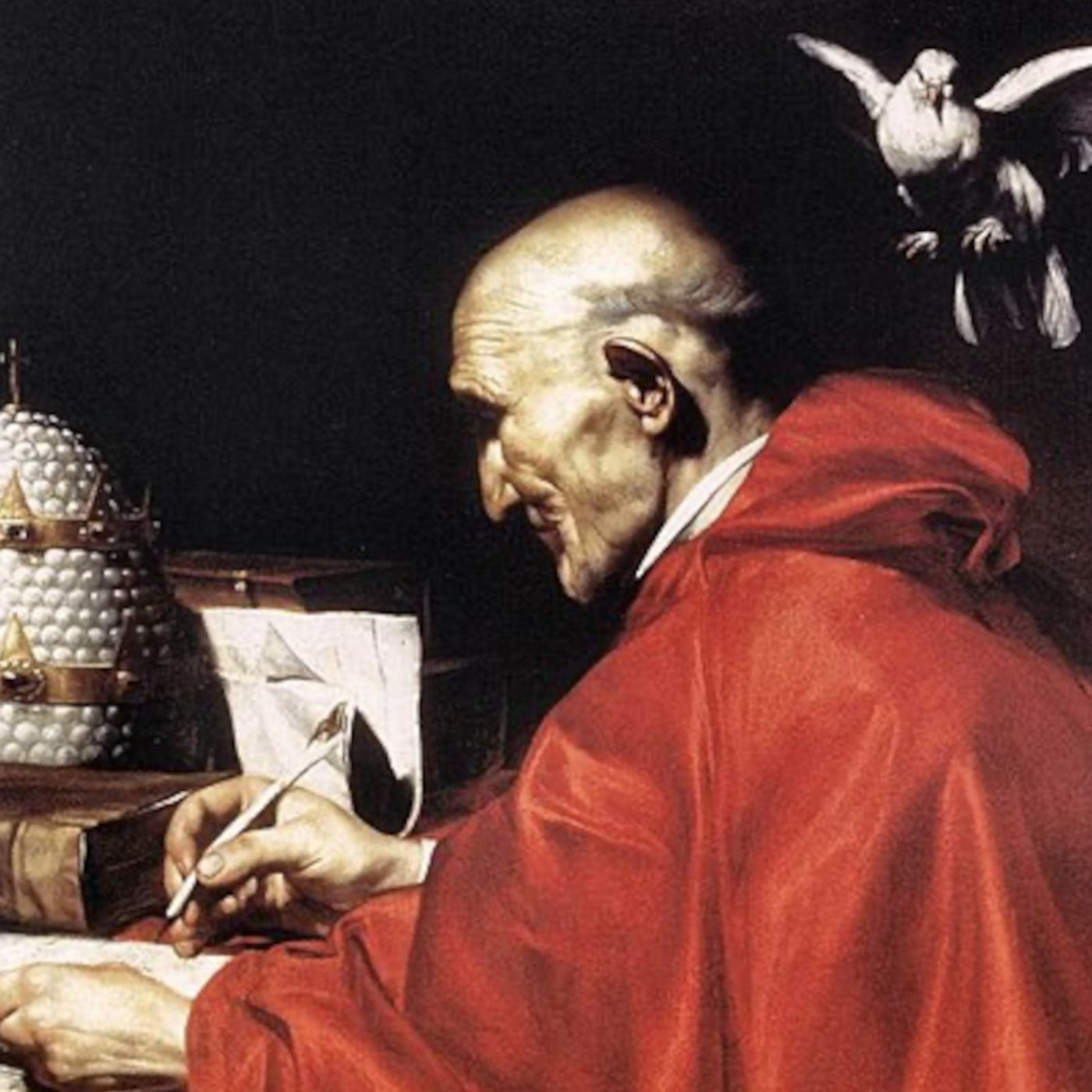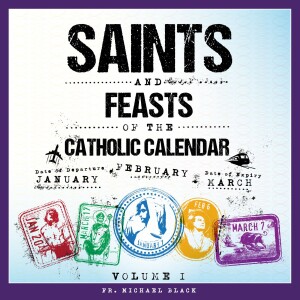
September 3: Saint Gregory the Great, Pope and Doctor
 2024-08-31
2024-08-31
Download
Right click and do "save link as"
September 3: Saint Gregory the Great, Pope and Doctor
c. 540–604
Memorial; Liturgical Color: White
Patron Saint of musicians, singers, students, and teachers
A gifted nobleman serves Rome, becomes a monk, and then a consequential pope
When your salad is awesome, your car amazing, and your internet connection is great, there’s a problem. Overused superlatives diminish their own meaning and crowd the linguistic space reserved for things which are truly awesome, amazing, and great. Today’s saint sent the large missionary party that trekked across Europe and converted Saxon England to Catholicism, establishing a culture that endured for almost a millennium. That’s awesome! He wrote a theological work that was used for centuries by thousands of bishops to help them become more fatherly pastors. That’s amazing! Gregorian chant is named after him; he is one of the four Latin Fathers of the Church; he was the first pope to use “Servant of the Servants of God” as a papal title; he alone preserved the memory of Saint Benedict with a biography; he made revisions to the content and structure of the Mass which are part of the liturgy until today; and he was the most impactful pope of the long span of centuries from the 500s to the 1000s. That’s great! These accomplishments thus truly merit the title Great with which Saint Gregory has been justly crowned by history.
Pope Saint Gregory the Great was born into a noble Roman family with a history of service to Church and empire. The family home was perched on one of Rome’s seven ancient hills, the Caelian, which Via San Gregorio still cuts through today. His father was a Roman senator, although at a time when Italy was in decline and the imperial government was based in Constantinople. Gregory received an education in keeping with his class and became the Prefect of Rome, its highest civil position, in his early thirties. In 579 he was chosen by the pope as his emissary to the emperor’s court in Constantinople, primarily to seek the emperor’s assistance in protecting Italy from the Lombard tribes that had long ago overrun her.
Gregory was elected the bishop of his home city in 590 and was thus obligated to abandon the quiet life of a monk, which he had been living with some friends for a few years in a small monastery near his family home. In numerous letters which have fortunately been preserved, Pope Gregory, soon after his election, bemoans the loss of his monastic solitude, peaceful recollection, and life of prayer. But he had only been a monk for a few short years. Gregory’s skills as an administrator, honed in his long years of prior civil and church leadership, proved valuable when he sat on the Chair of Saint Peter.
He drew into the orbit of papal authority the bishops of France and Spain who had, until then, been operating somewhat autonomously. He secured the allegiance of Italy’s northern tribes to orthodox Catholicism, compelling them to abandon the counterfeit Arian Christianity they had held for centuries. And Gregory made the fateful decision to personally organize and promote the great, and highly successful, missionary journey of Saint Augustine of Canterbury to the Kingdom of Kent in England.
Pope Saint Gregory the Great’s legacy in liturgy, pastoral doctrine, and miracles left a deep mark on medieval Europe and beyond. The Council of Trent in 1562 mandated the suppression of votive Mass cycles for the dead or for any other need. But the Council Fathers made one exception: The Mass of Saint Gregory, a cycle of thirty Masses on thirty consecutive days for the release of a soul from purgatory, was not suppressed. Almost a thousand years after his death, Gregory’s memory was too venerable to suppress. Gregory was an encourager of the encouragers, a bishop who modeled, strengthened, and explained how and why his fellow bishops should be fathers first and lords second.
Pope Saint Gregory the Great, your example of holy leadership, of scholarly practicality, of balance between universal and local concerns, helps all Christians to weigh their many duties in a proper balance and to choose correctly what matters most to God and their own salvation.
view more
c. 540–604
Memorial; Liturgical Color: White
Patron Saint of musicians, singers, students, and teachers
A gifted nobleman serves Rome, becomes a monk, and then a consequential pope
When your salad is awesome, your car amazing, and your internet connection is great, there’s a problem. Overused superlatives diminish their own meaning and crowd the linguistic space reserved for things which are truly awesome, amazing, and great. Today’s saint sent the large missionary party that trekked across Europe and converted Saxon England to Catholicism, establishing a culture that endured for almost a millennium. That’s awesome! He wrote a theological work that was used for centuries by thousands of bishops to help them become more fatherly pastors. That’s amazing! Gregorian chant is named after him; he is one of the four Latin Fathers of the Church; he was the first pope to use “Servant of the Servants of God” as a papal title; he alone preserved the memory of Saint Benedict with a biography; he made revisions to the content and structure of the Mass which are part of the liturgy until today; and he was the most impactful pope of the long span of centuries from the 500s to the 1000s. That’s great! These accomplishments thus truly merit the title Great with which Saint Gregory has been justly crowned by history.
Pope Saint Gregory the Great was born into a noble Roman family with a history of service to Church and empire. The family home was perched on one of Rome’s seven ancient hills, the Caelian, which Via San Gregorio still cuts through today. His father was a Roman senator, although at a time when Italy was in decline and the imperial government was based in Constantinople. Gregory received an education in keeping with his class and became the Prefect of Rome, its highest civil position, in his early thirties. In 579 he was chosen by the pope as his emissary to the emperor’s court in Constantinople, primarily to seek the emperor’s assistance in protecting Italy from the Lombard tribes that had long ago overrun her.
Gregory was elected the bishop of his home city in 590 and was thus obligated to abandon the quiet life of a monk, which he had been living with some friends for a few years in a small monastery near his family home. In numerous letters which have fortunately been preserved, Pope Gregory, soon after his election, bemoans the loss of his monastic solitude, peaceful recollection, and life of prayer. But he had only been a monk for a few short years. Gregory’s skills as an administrator, honed in his long years of prior civil and church leadership, proved valuable when he sat on the Chair of Saint Peter.
He drew into the orbit of papal authority the bishops of France and Spain who had, until then, been operating somewhat autonomously. He secured the allegiance of Italy’s northern tribes to orthodox Catholicism, compelling them to abandon the counterfeit Arian Christianity they had held for centuries. And Gregory made the fateful decision to personally organize and promote the great, and highly successful, missionary journey of Saint Augustine of Canterbury to the Kingdom of Kent in England.
Pope Saint Gregory the Great’s legacy in liturgy, pastoral doctrine, and miracles left a deep mark on medieval Europe and beyond. The Council of Trent in 1562 mandated the suppression of votive Mass cycles for the dead or for any other need. But the Council Fathers made one exception: The Mass of Saint Gregory, a cycle of thirty Masses on thirty consecutive days for the release of a soul from purgatory, was not suppressed. Almost a thousand years after his death, Gregory’s memory was too venerable to suppress. Gregory was an encourager of the encouragers, a bishop who modeled, strengthened, and explained how and why his fellow bishops should be fathers first and lords second.
Pope Saint Gregory the Great, your example of holy leadership, of scholarly practicality, of balance between universal and local concerns, helps all Christians to weigh their many duties in a proper balance and to choose correctly what matters most to God and their own salvation.
More Episodes
November 11: Saint Martin of Tours, Bishop
 2024-11-11
2024-11-11
 2024-11-11
2024-11-11
November 4: Saint Charles Borromeo, Bishop
 2024-11-04
2024-11-04
 2024-11-04
2024-11-04
November 1: All Saints
 2024-10-29
2024-10-29
 2024-10-29
2024-10-29
October 28: Saints Simon and Jude, Apostles
 2024-10-24
2024-10-24
 2024-10-24
2024-10-24
October 23: Saint John of Capistrano, Priest
 2024-10-23
2024-10-23
 2024-10-23
2024-10-23
October 22: Saint John Paul II, Pope
 2024-10-22
2024-10-22
 2024-10-22
2024-10-22
October 18: Saint Luke, Evangelist
 2024-10-18
2024-10-18
 2024-10-18
2024-10-18
October 11: Saint John XXIII, Pope
 2024-10-10
2024-10-10
 2024-10-10
2024-10-10
012345678910111213141516171819
Create your
podcast in
minutes
- Full-featured podcast site
- Unlimited storage and bandwidth
- Comprehensive podcast stats
- Distribute to Apple Podcasts, Spotify, and more
- Make money with your podcast
It is Free
- Privacy Policy
- Cookie Policy
- Terms of Use
- Consent Preferences
- Copyright © 2015-2024 Podbean.com





